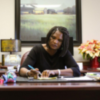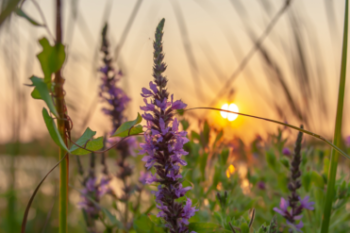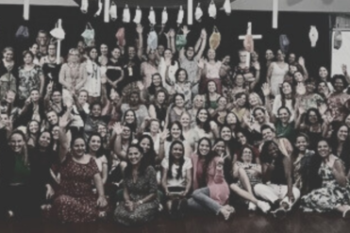Remember MLK and Remove the Barriers
As a federal holiday approaches when we will recognize the birthday of Reverend Dr. Martin Luther King Jr., it is important to remember that he is the first and only clergy person to be so honored. Most of us are familiar with some, if not all of his speech, “I Have a Dream” (Washington, DC, August 28, 1966). It is possibly the most familiar of his numerous sermons and speeches, which are frequently recited this time of the year.
My favorite of his works is from a speech at Southern Methodist University, March 17, 1966.
We shall match your capacity to inflict suffering by our capacity to endure suffering. We will meet your physical force with soul force. Do to us what you will and we will still love you.
To love others so much that you are willing to suffer for them…who does that? Christ did. And at his feet we must continue to learn to love.
When Pope Francis visited our country in 2015, he mentioned four Americans in his speech to the U.S. Congress—Thomas Merton, Dorothy Day, Abraham Lincoln and Dr. King. The pope spoke of King possessing a dream of “liberty in plurality and non-exclusion.”
In England, at Westminster Abbey, a statue of Dr. King stands among ten “Modern Martyrs of the 20th Century”.
On a trip to Turkey a few years ago, I became quite engaged in conversation with a Turkish gentleman who knew more about the life and ministry of Dr King than most Americans. I was surprised someone a world away would have an interest and so much respect for Dr. King’s life.
It caused me to wonder, does the world see more of the greatness and appreciate the universality of Dr. King’s work more than we do? Are we taking the familiar for granted? Do some of us see King’s legacy as beneficial for African Americans exclusively? It appears we are living out the reception of the prophet in his own town, which Jesus references in Mark 6:4.
January 15th is another day off from work or school—a federal holiday. Programs featuring Dr. Kings biography, speeches and legacy are frequently aired throughout the day. I am old enough to remember the petitions and campaign to make Dr. King’s birthday a holiday. Stevie Wonder wrote and sang a song about it. I understood we wanted his birthday to be remembered so present and future generations would understand the importance of ensuring freedom for all. Lives were lost and injustice reigned, but we preserved.
America is changing and I believe the lessons we have learned from the past are more important than ever before. America’s core racial and ethnic demographics are shifting. Between 2020 and 2025, the US population will grow from 331 million to 350 million people. The non-Hispanic white population in 2020 represented 59.7% of the population. In 2030, it will represent 55.8% and by 2045, the non-Hispanic, white population will become a minority as the percentage of the population it represents will be less than 50%. (U.S. Census, 2020)
What does this mean for the church and those who feel called to vocational ministry? In 1963, Dr. King stated, “It is appalling that the most segregated hour of Christian America is eleven o’clock on Sunday morning.” The church chose to be segregated in the past. I do not believe we can, or that we should continue as we have in the past. Nor, do I believe it has ever been the will of God for us to separate the body of Christ.
Not only are we looking to a future with a fewer percentage of European Americans in our country, but we must also consider our emerging biracial population. Additionally, many in our nation are immigrants from every corner of the world, who though far from the land of their birth are making the U.S. their home. Welcome!!!
A few years ago, I was called to a church that I did not apply to become their senior pastor. I was their first female pastor, and as an added treat, the church was located in a rural town in Arkansas which Google had characterized as “the most racist town in America.” As an African American woman, I frequently asked myself, “How did I get here? Nobody looks like me. We have different cultures.” They had no idea what it was like for me, and I guess, I assumed what their world was like. The majority of my congregants had never sat down and had a conversation with a person of color. This is in a time of George Floyd, Black Lives Matter, Fox News, and MSNBC News. How could I preach to them? What did I have in common with them? Bottom line, but God.
Once, I was honored to preach to a congregation in Lisbon, Portugal. It was a multicultural, multiethnic, multigenerational, and multinational gathering. One of the members of the congregation greeted me after I spoke and said, “I’m so glad you’re here because you look like me.” Let me repeat. What does this mean for the church and those who feel called to vocational ministry? I am convinced we will find ourselves in more and more churches; mission fields; non-profit ministries; and hospitals among other places where God sends us in which no one will look like us. I believe it’s a luxury. We are called to take the gospel to the world and not just to each other.
I believe that to be effective in any type of ministry in this changing world, we cannot expect to be among people who act, talk, look, or even sound like us. As we prepare ourselves to minister to the world, clergy or laity, we need to have an open heart and the ability to accept whoever God sends our way. It is our responsibility to give people the space to be who they are and who God intended them to be. The Apostle Paul wrote:
To the weak I became weak, so that I might win the weak. I have become all things to all people, that I may by all means save some.
1 Corinthians 9:22
This MLK Day, consider building bridges and strengthening relationships by engaging with someone who does not look like you. Not as a social experience, but as a potential friend—knowing everyone you meet was created in the image of the same God you were. Spend time with them without judgment or blame. There are folks who do not look like you because of their race, sexual orientation, immigration status, condition of homelessness, native tongue, ethnicity, faith (or lack thereof), or politics. In this way you will begin to comprehend the vastness of God’s loves on this earth.
By building these relationships, we emulate the beautiful diversity of the banquet of the Lamb. Come as you are to the table of God. May this MLK Day and those in the future, be a day where we celebrate one less barrier between the men and women who are on the planet at the same time we are. I believe God planned for us, all of us, to go through this life together.
Rev. Joanne Walker Flowers is an alum of Emmanuel Christian Seminary at Milligan. View Emmanuel’s Academic Programs page here.





